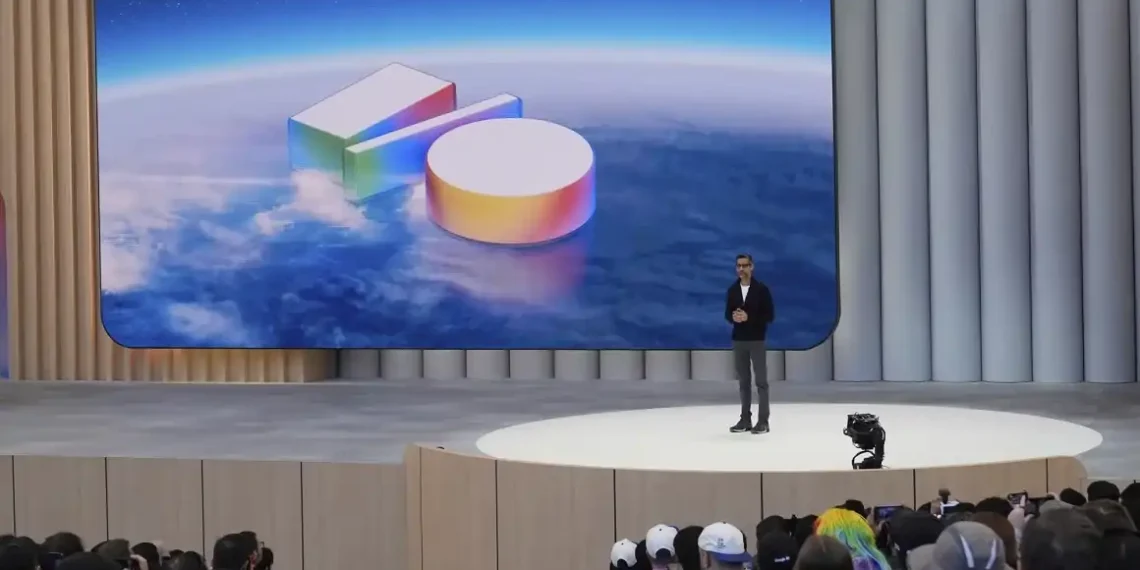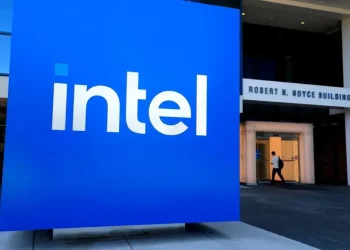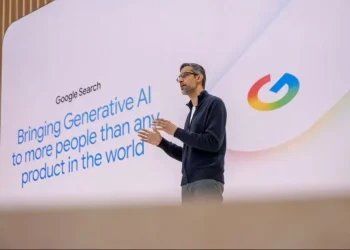Google Reveals Bold Vision for the Future of Search
The way we “Google” something—typing in keywords and scrolling through a list of links—is about to change dramatically. On Tuesday, Google unveiled a suite of updates that could transform its iconic search engine into a smarter, more personalized digital assistant.
From Keywords to Digital Agents
Google’s vision moves far beyond the traditional search box. Instead of just delivering links and snippets, the company wants its search engine to act like a “digital agent” that understands your real-world context, preferences, and surroundings to provide precise answers. This marks a major shift in how we find information online, driven by artificial intelligence.
Google’s CEO Sundar Pichai described the moment as a new era for AI: “We are now entering a new phase of the AI platform shift, where decades of research are now becoming reality for people, businesses, and communities all over the world.”
Introducing AI Mode
One of the biggest announcements is the expansion of “AI Mode” in the Google app, now available to all U.S. users. Unlike traditional search, AI Mode breaks down questions into subtopics and performs multiple related searches to deliver detailed, tailored answers.
Soon, AI Mode will personalize responses even more by using your search history and integrating with other Google apps like Gmail.
Two Game-Changing Features Coming Soon
Google is also rolling out two exciting new AI-powered ways to search:
- Task Automation: Powered by Project Mariner, this feature can handle complex, multi-step tasks for you. For example, you might ask, “Find two affordable tickets for this Sunday’s Reds game,” and Google will search, compare prices, fill out purchase forms, and present options—all automatically.
- Live Visual Search: By using your phone’s camera, you can show Google what you’re looking at in real time. Imagine fixing your bike and pointing your camera at a bolt to ask if it’s the right size. This builds on Google Lens but takes it further with live, context-aware help.
These features are currently in the Labs section of the Google app and will expand in the coming months.
Keeping Search and Assistance Clear
Google’s AI assistant, Gemini, shares some features with the search engine, but Google emphasizes a key difference: Search is for learning and discovery, while Gemini is designed to help with tasks like coding and writing.
Facing Rising Competition
Google’s dominance in search has lasted nearly 30 years, but now faces intense competition. AI chatbots like ChatGPT and new AI-driven search engines such as Perplexity offer fresh alternatives. Tech giants Apple, Amazon, and Microsoft are also integrating AI into their virtual assistants, and OpenAI recently launched its own AI-powered search engine.
Notably, Apple’s Eddy Cue revealed in court that Google searches in the Safari browser dropped in April 2025 for the first time since 2002, signaling a potential shift in user habits. Google disputes this, pointing to overall growth in search queries.
Market analysts predict that by 2026, traditional search volume could drop by 25% as AI tools become more popular.
Google’s Future Outlook
Despite the challenges, Google is optimistic. Sundar Pichai described the future as “a proactive world, an agentic world” where AI anticipates user needs and takes action on their behalf.
With these AI-powered updates, Google aims to stay at the forefront of how we explore the web—making search more intuitive, interactive, and personalized than ever before.
This article was rewritten by JournosNews.com based on verified reporting from trusted sources. The content has been independently reviewed, fact-checked, and edited for accuracy, neutrality, tone, and global readability in accordance with Google News and AdSense standards.
All opinions, quotes, or statements from contributors, experts, or sourced organizations do not necessarily reflect the views of JournosNews.com. JournosNews.com maintains full editorial independence from any external funders, sponsors, or organizations.
Stay informed with JournosNews.com — your trusted source for verified global reporting and in-depth analysis. Follow us on Google News, BlueSky, and X for real-time updates.














